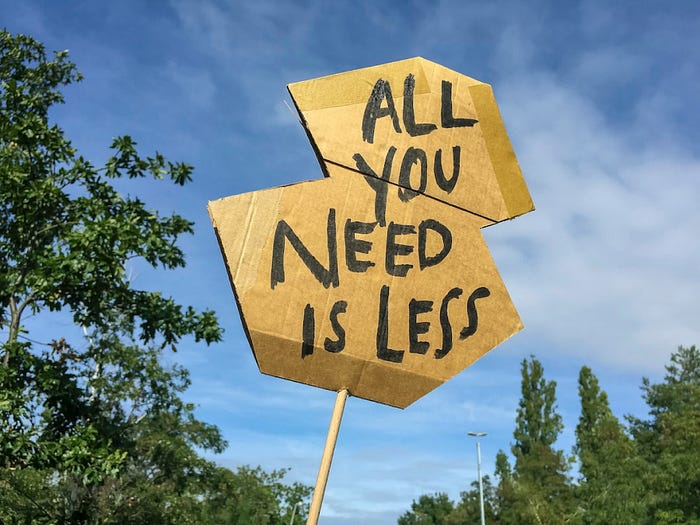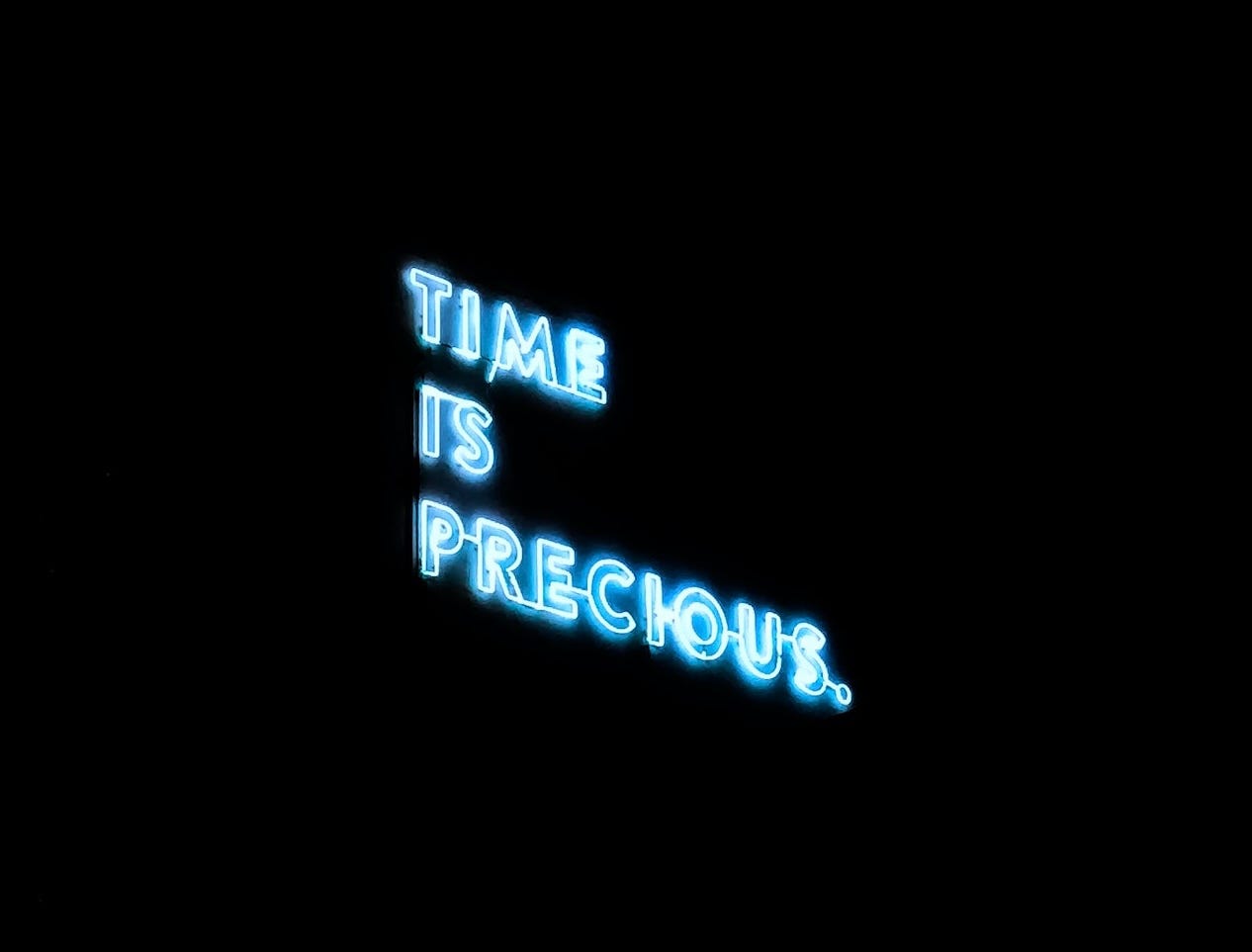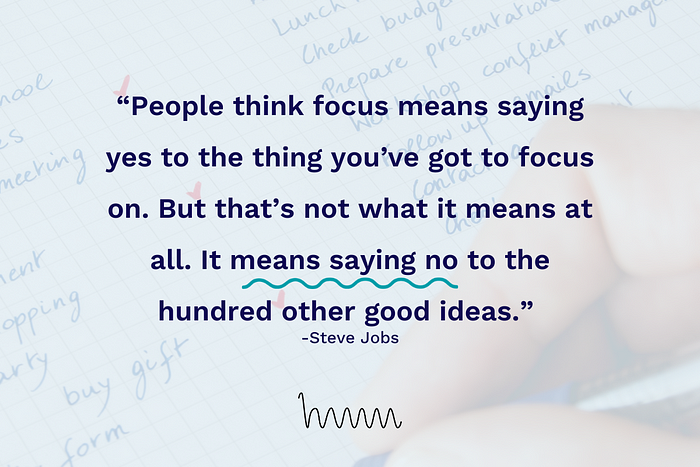Hint: it involves ruthless prioritization and making (minimal) high-integrity commitments
So 2022, that was… something else.
I don’t know about you, but I feel like I went through the wringer last year. My immune system is shot and I spent much of the year feeling burned out and overloaded.
A lot of wonderful things happened, too. I finally got to travel — both on my own and with family. I took on some wonderful new and returning clients that filled my days with rewarding work and truly great people. I got deep into my graduate school writing program. And I read 60 books — a few of which together flipped a switch that I hope will ensure 2023 does not leave me feeling drained.
The first book was 4,000 Weeks: Time Management for Mortals by Olive Burkeman. This was the most important book I read in 2022, and I wrote about it in my year-end post on rest. The main lesson is that obsession with productivity and efficiency are very modern concepts — a medieval peasant farmer would never feel bad about relaxing during leisure time. This mindset of go go go isn’t all that good for humans like me who have essentially made themselves cogs in the capitalist machine.
Then, in How to be an Imperfectionist, by Stephen Guise, I learned how tiny habit tactics can help reverse unhealthy behaviors that have kept me stuck in a toxic loop of trying for perfectionism, inevitably leading to burnout.

And finally, in Marty Cagan’s now classic product management book, Inspired, I re-learned the concept of high-integrity commitments— and the importance of making them the exception and not the norm.
I was also fortunate enough to meet Marty and his SVPG partners at a “Coach the Coaches” workshop in New York City in December. That workshop reminded me how important it is to assess value and keep it central to prioritization. Even though the examples we discussed were from software development teams and digital transformations, I think the concept applies equally well to human beings and how we choose to spend our time. Outcomes over output. Checking useless items off a list is, well, useless.

I decided to put these three concepts together — a new lens on productivity, imperfection, and high-integrity commitments — to create my own personal recipe for mental health, personal growth, and success in 2023.
My vision: A future in which I have accomplished my most important goals without burning out.
My Strategy
- Rethink time and my capacity to mandate space for thinking and rest, and to allow wiggle room for the unexpected. I have never done this particularly well. I feel guilty about taking time for thinking or even pausing after a meeting to mull over my next steps and write them down. And I routinely ignore my own boundaries for focus time I block out on my calendar. In 2023, I will work on this.
- Stop thinking of time in buckets. I tend to think of “work time,” “personal time,” and “family time,” but that has not been working for me. Time is fluid and the categories are pretty big. Personal time is a big category that includes family, health, fitness, leisure, hobbies, volunteering, household management, budgeting, and graduate school. And work time, is that just client time or all the time I spend on my business? Then I fill each category with a never-ending to-do list and wonder why I feel overwhelmed.
- Think about value. I need to start assessing the value of everything that goes on my list(s) and prioritize. I used to think I could do it all, but my idea of “all” is way too big.
- Delegate or delete. There is nothing more satisfying than deciding you’re not going to do something or letting someone else do it. It’s a tough pill to swallow as a perfectionist, but letting go is power.
- Commit less often. I will only commit to things I’m reasonably sure I will be able to do and want to do when the time comes. That means I have to make decisions less impulsively and leave room for future commitments. I can’t fill up every weekend with fun activities if I know I will need downtime when I get burned out or sick. Or that something more important might come up and force me to cancel.
- Say no often. This is a tough one for a people-pleaser. I want to say yes. I want to be the mom who is there for the school events. I want my daughter’s Girl Scout troop have a great cookie sale. I want to listen to people who are having a tough week at work or need career advice. But I cannot do it all, and I won’t even if I say yes to them, so I will say no.
- Worry less about my reputation. This all means I need to worry less about what others think of me and focus on the value I’m getting and giving from what I am doing. I do care that people think I’m nice and generous and hard-working. But I care more that I am healthy and enjoy my life.
- Reflect, rinse, and repeat. Continuous improvement is a value I talk about a lot when working with product teams. The concept of progress over perfection is important for growth and creating a culture where experimentation and learning are not only acceptable but central to the work strong product teams do. And yet, many of us who have chosen this kind of work are type A perfectionists and struggle to let go of that trait, even when it turns toxic. The cobbler’s children have no shoes.
So there it is. A product management coach’s vision and strategy for 2023.
I’m not going to go full scrum on my life, but I am going to keep my Kanban-style lists going. I wonder how I might consolidate four disparate Trello boards (my buckets) into one. Wish me luck!

Maura Charles is the founder of Keep it Human. As a Product Leadership Coach and Consultant, she is on a mission to help teams and organizations embrace human skills like communication and emotional intelligence in their ways of working.
She brings 25 years of experience as an editor, product manager, and digital business leader to bear on the challenges of building human-centered high-performing tech teams.
If you’d like to develop more human business and tech teams that hum together to drive results, check out Keep it Human and follow Maura Charles on LinkedIn.

